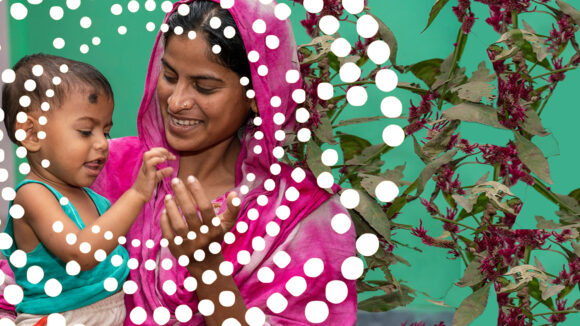Eye health problem in Bangladesh may spiral without concerted action
Sightsavers launches new campaign to address eye issues

The number of people in need of eye care is spiralling in Bangladesh where 19 in every 100 adults aged 30 years or older had visual impairment in 2020.
Eye problem is not confined to any region; it is a global phenomenon. It is estimated that without concerted action, the number of people who are blind across the world could triple by 2050.
According to people working for eye health, good eye health has a ripple effect on society, improving education, wellbeing, economics, and health outcomes.
Marking this year’s World Sight Day, which falls on 13 October, international development organisation Sightsavers is calling on governments, organisations, donors, and communities through its new ‘Eye health Equals’ campaign to ensure eye health is prioritised.
Sightsavers, the government of Bangladesh, and other development organisations and stakeholders, are also working together on eye health awareness building and screening activities at both national and district levels. This includes month-long community eye health screenings hosted by Sightsavers in 16 districts.
Amrita Rejina Rozario, Sightsavers Bangladesh Country Director, said: “Eye health is often seen in a silo rather than part of the wider health and development agenda. But eye health equals opportunity, allowing children to learn and adults to earn. It helps individuals, families, communities, and nations, to thrive.”
She said: “The growing eye health crisis is not inevitable; we can stop it if we come together to act now. We all need to increase the attention eye care is given and recognise how integral it is to every facet of life. By making it part of national and global development work and focusing on gender and disability inclusion, we will reduce inequality and help achieve the United Nations’ Sustainable Development Goals.”
The importance of eye health can be seen through stories people such as Arif from Narsingdi. As a child, Arif found it difficult to see properly to play with friends, and could not keep up with peers at school. He was diagnosed with cataracts in both eyes and operations through a Sightsavers project changed his life.
Speaking in recent years as an adult, Arif said: “After the surgery I was very happy. I didn’t understand as a child, but now I understand what a gift sight is. There were no problems in my study and no problem playing.”
He now works as a driver, which he does not think would have been possible without the sight-saving operation.
In Bangladesh, Sightsavers is working with the government and other partners to reduce avoidable blindness through an inclusive eye care programme. The organisation’s activities will improve equitable access to quality eye health services for women and men, with and without disabilities, and those from marginalised groups in target districts. But there is still more to be done.
Rafiqul Islam, Eye Health Project Manager at Sightsavers, adds: “The United Nations’ Sustainable Development Goals mention leaving no one behind, but there are still many people in that position. If we are to tackle the eye health burden in Bangladesh, continued cross-sector collaboration, well-resourced interventions, funding, and commitments are needed to integrate inclusive eye health into wider health, education, employment, and development systems. As individuals, we should also all take a level of responsibility for our own eye health, by getting our eyes tested twice a year.”
Sightsavers ‘Eye Health Equals’ campaign and World Sight Day activities complement the wider International Agency for the Prevention of Blindness (IAPB) call this World Sight Day to ‘Love Your Eyes’ and focus the world’s attention on the importance of eye care.




